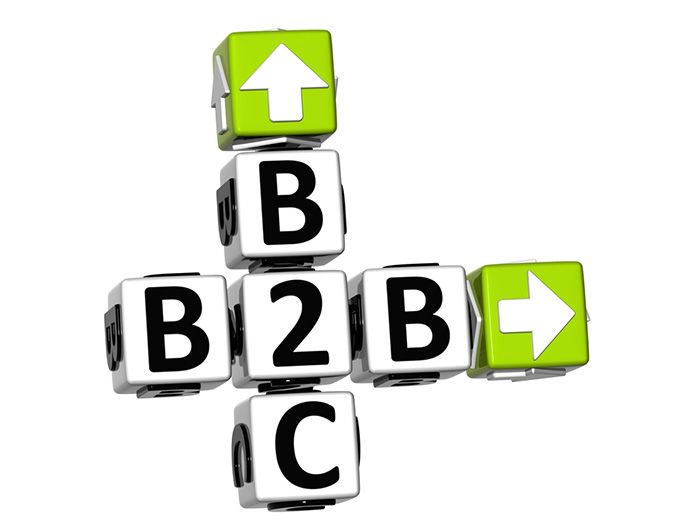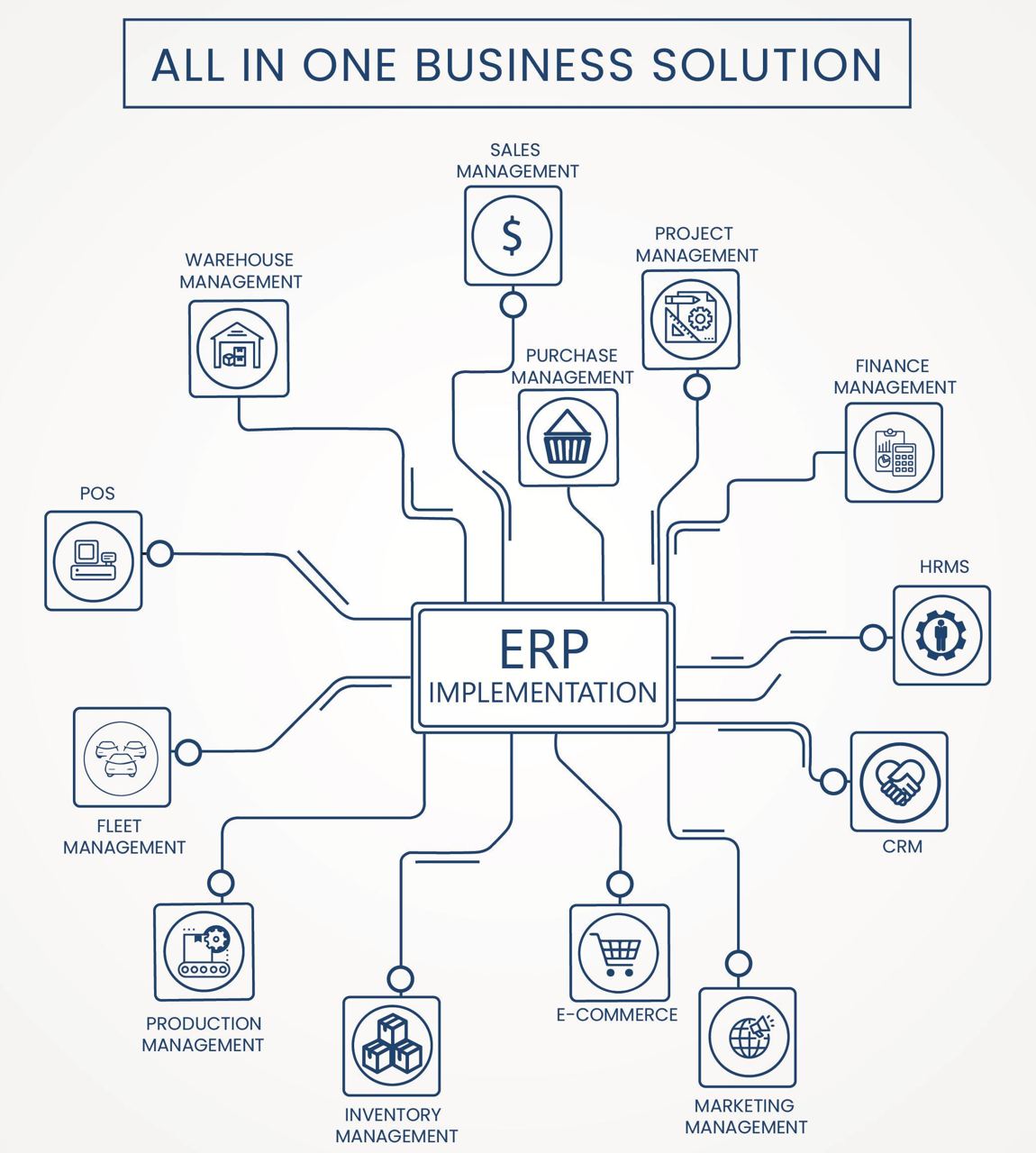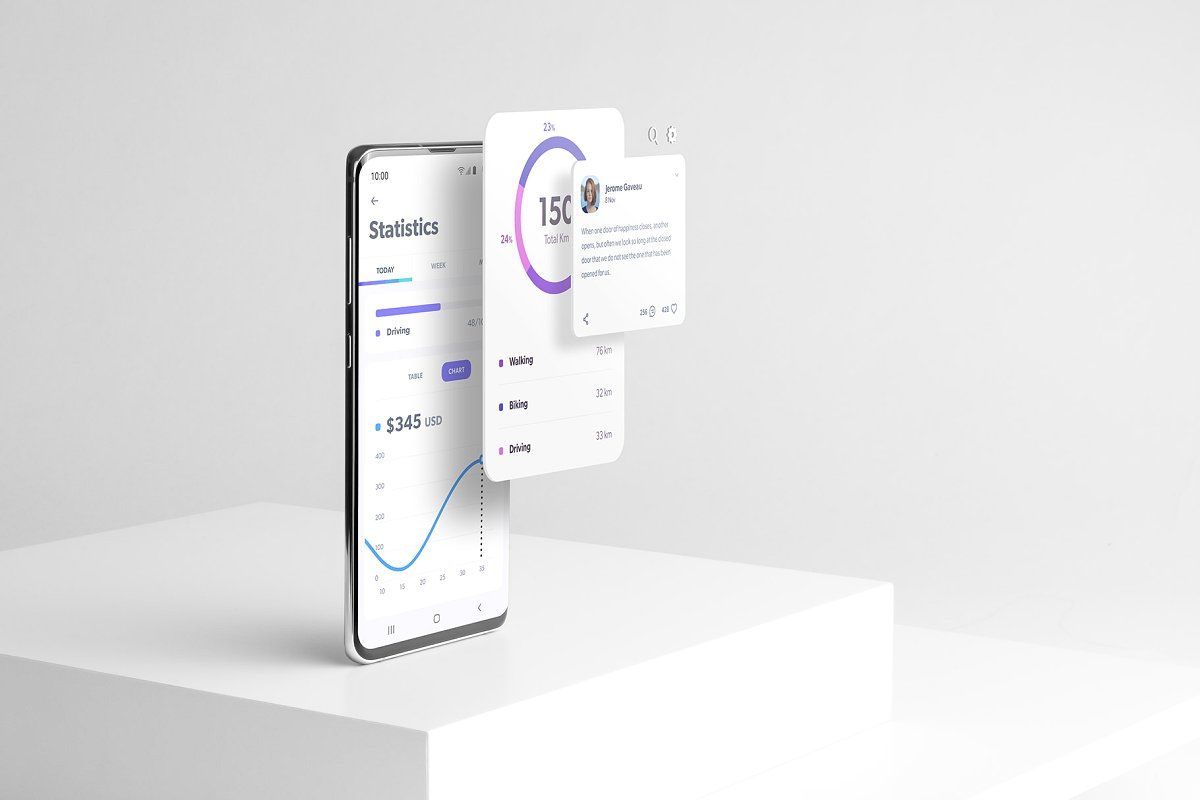In the vast digital landscape, where B2C platforms dazzle with their user-centric designs and seamless experiences, the B2B sector often feels like a relic from a bygone era. Many B2B online platforms are riddled with outdated interfaces, cumbersome navigation, and a glaring lack of mobile optimization. This can be a difficult and frustrating experience for businesses that want to buy a lot of products or specialize in something. But what if we told you that the future of B2B sales is on the brink of a revolution, all thanks to the integration of eCommerce with ERP systems?
Let's look at this transformative potential and how it's changing business-to-business sales.

The Current State of B2B Online Platforms
B2B sales have traditionally been a complex dance of negotiations, long-term relationships, and intricate purchase orders. While the B2C sector rapidly evolved with the digital age, embracing user-friendly platforms and mobile optimization, the B2B segment lagged. Many platforms today feel clunky, with a steep learning curve, and are not optimized for the mobile user, despite a significant portion of users accessing these platforms via smartphones.

Unlocking the Potential of B2B with ERP Integration
ERP, or Enterprise Resource Planning, systems offer a holistic view of business operations, from inventory management to customer relations. Integrating ERP with eCommerce platforms can transform the B2B experience:
Real-time Inventory Updates: No more back-and-forth emails or calls to check product availability.
Automated Order Processing: Reduce manual order entries and speed up processing.
Dynamic Pricing: Display the correct prices based on the logged-in user.
Enhanced Customer Experience: Offer personalized experiences, from product recommendations to tailored marketing messages.
Advanced B2B Features for Enhanced User Experience
To truly harness the potential of B2B eCommerce, businesses need to consider implementing advanced features tailored to the unique needs of B2B customers:
Account Management
This feature allows businesses to create and manage multiple user accounts with varying access levels, permissions, and roles within the organization.
Business Benefit: Streamlining user access control not only enhances security but also enables efficient collaboration within the organization. It ensures that the right personnel have access to the right resources, improving operational efficiency and data security.
Bulk Ordering / Quick Order
Enables customers to place large orders with multiple items swiftly, often with the option to upload CSV files or use a structured interface for efficiency.
Business Benefit: This feature increases order processing speed, reduces manual data entry errors, and caters to the needs of customers who frequently place bulk orders, leading to improved customer satisfaction and potentially larger order volumes.
Catalog Segmentation
Tailor your product offerings to different customer groups, creating a personalized e-commerce experience.
Business Benefit: By delivering customized product catalogs to different customer segments, businesses can boost customer engagement and loyalty, thereby increasing conversion rates.
Custom Pricing
Provide personalized pricing based on a customer's negotiated terms, order volume, or loyalty level.
Business Benefit: This feature enhances customer relationships by ensuring transparency and consistency in pricing. It encourages repeat business and ensures customers receive fair and competitive pricing.

Request a Quote
Foster collaborative dialogues with customers by streamlining negotiations through the "Request a Quote" feature.
Business Benefit: This strengthens customer relationships, increases sales opportunities, and simplifies the negotiation process, resulting in improved customer satisfaction and potentially higher conversion rates.
Inventory Management
Offer real-time inventory visibility, notifications for low stock levels, and integration with business inventory systems.
Business Benefit: This reduces the risk of stockouts, enhances customer trust, and optimizes inventory management, ultimately leading to increased sales and minimized operational disruptions.
Purchase Approval Workflows
Implement multi-step approval processes for orders, ensuring that managers or designated personnel review and approve purchases before they are finalized.
Business Benefit: This enhances control over expenditures, reduces the risk of unauthorized purchases, and improves compliance with procurement policies, resulting in cost savings and improved financial management.
Credit and Payment Terms
Offer flexible payment options such as net terms, credit lines, or purchase orders.
Business Benefit: By providing flexible payment options tailored to each customer's financial situation, businesses can attract a wider range of customers, simplify the purchasing process, and encourage larger order sizes.
B2B Company Account
Give businesses one place to keep their company accounts, so they can easily manage all business transactions and interactions.
Business Benefit: This feature can enhance transparency, streamline B2B operations, and foster stronger customer relationships. By offering a comprehensive platform for efficient data management and access control.
Customer Support and Assistance
Offer dedicated B2B customer support channels, including live chat, phone support, and email, with specialized agents who understand the unique needs of business customers.
Business Benefit: This enhances customer satisfaction, resolves issues promptly, and builds trust by providing personalized and efficient support tailored to the needs of B2B customers, ultimately fostering long-term relationships.

The Mobile Revolution in B2B
A user-centric design isn't just a buzzword; it's the need of the hour. B2B platforms must be optimized for mobile use:
Faster Decision Making: Businesses can place orders, check inventory, or view their order history on the go.
Increased Engagement: Boost user engagement with intuitive interfaces and personalized experiences.
Reaching a Wider Audience: Open up your platform to a wider audience, from field agents to traveling executives.
In Conclusion
The B2B sector stands at the cusp of a digital transformation. By combining eCommerce with ERP systems and using mobile optimization and user-centric designs, B2B platforms can offer experiences that are as good as their B2C counterparts. The future of B2B sales is not just about transactions. It's about seamless, engaging, and efficient experiences that drive growth and foster long-term relationships. Embrace the change, and let your B2B platform be a beacon of innovation in the digital age.



